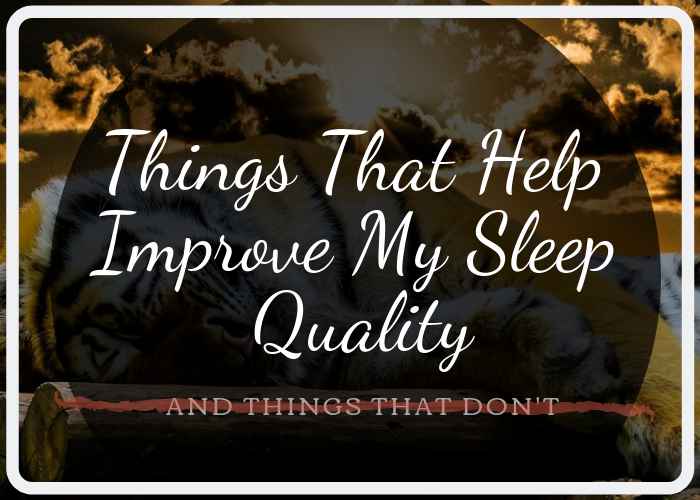You can only train as hard as you can recover
People have different ways they believe assists them in their recovery process. This includes protein shakes, massage devices, ice baths, sauna and more. Some methods of recovery may have more of a placebo effect than anything else.
One undisputed fact today is the importance of sleep for physical and mental performance and recovery.
A couple points to note about sleep and recover:
- Most of the natural human growth hormone is produced during sleep.1
- Lack of sleep seriously impacts athletic performance, mental errors, injury rates, reaction time, and overall health2.
- Athletes and those who work out more above average require above average sleep.3
- While you sleep, your body creates more white blood cells to assist you in attacking viruses and bacteria.4
Sleep has been the most important factor for me in terms of how I feel the next day and how I perform at work and training sessions. While some supplements or specific diets do yield noticeable positive effects, nothing has a more noticeable effect for myself than getting enough sleep.
The best performance enhancing drug or nootropic has hands down been getting good quality sleep. This is why I’ve invested some time and money in trying to track and optimize my sleep.
Sleep Tracking
I’ve been tracking sleep on an off since 2011 starting with the now defunct Zeo, the Apple Watch w/ the Sleep Watch app, and now the Oura Ring.
Here are some notes about the devices that I have used to track my sleep.
Apple Watch (via Sleep Watch iOS app)
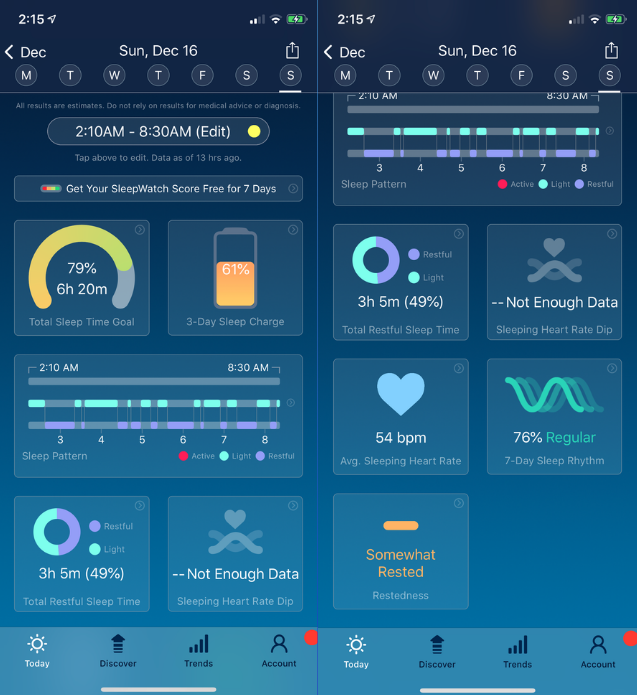
- If you tend to wake up in the middle of the night, detecting overall sleep times is difficult. For many nights, no matter how long I stay up in the middle of the night staring at the ceiling, the app says I was only up for 5-10 minutes.
- The dip in heart rate during sleep seems accurate or at least consistent. Normally my heart rate dips to 50-60 bpm. These numbers seem consistent with the Oura ring.
- Alcohol is the number 1 factor that disrupts my sleep. My heart rate remains elevated when falling asleep drunk or even when I have 3-4+ drinks.
- The Apple Watch has been the best alarm clocks I’ve used, lightly vibrating on your wrist to wake up while giving you easy access to turn off or snooze.
The Zeo
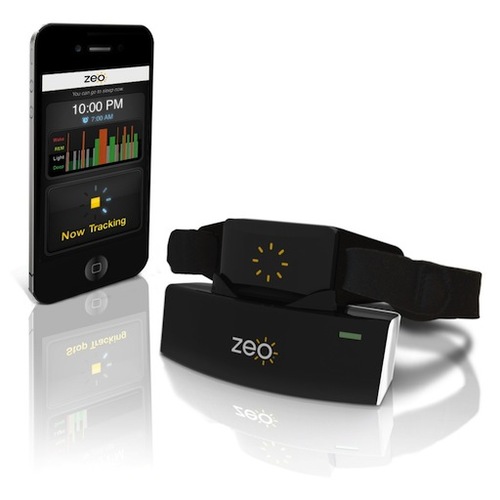
- The most accurate sleep detectors for consumers at the time (around 2011) using EEG signals.
- The average amount of deep sleep is 1.5-1.8 hours. I get about 1 hour of deep sleep on good nights.
- Tracks deep sleep more accurately than other devices. This is how I found out my deep sleep was relatively lower than average. I also noticed a significant increase in deep sleep after a few weeks of quitting coffee.
- The device, which went around your head like a headband was uncomfortable and would come off of your head often in the middle of the night.
- They shut down with little to no warning or notice to their customers which I thought was pretty unprofessional.
The Oura Ring
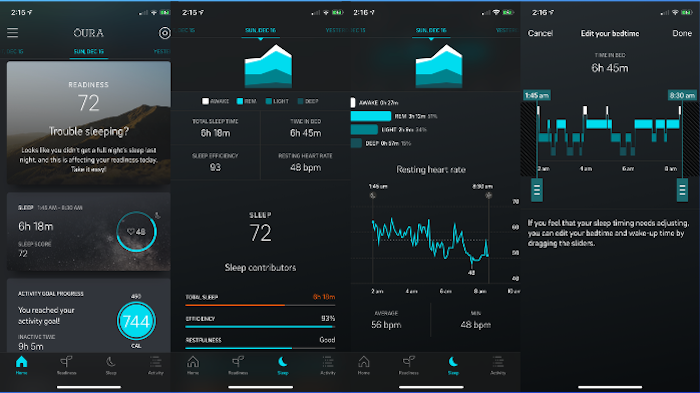
- Simple interface. Not many confusing options.
- Although the ring is easy to take on and off, having to take off the ring when I workout using weights is annoying since most of my workouts contain some type of weights or calisthenics work that might scratch up the ring.
- The sleep measurements track deep sleep as well as REM sleep. It also tells you your sleep efficiency score which is based on your time in bed, sleep latency, and the phases of sleep you are able to achieve while in bed.
- The Oura Ring also tracks heart rate variability throughout the night at consistent intervals, which is the best ways to measure HRV.
- The Stanford Research Institute compared the Oura ring to a polysomnography test and found it to be 96% accurate in sleep duration and 61% accurate for REM sleep. 5
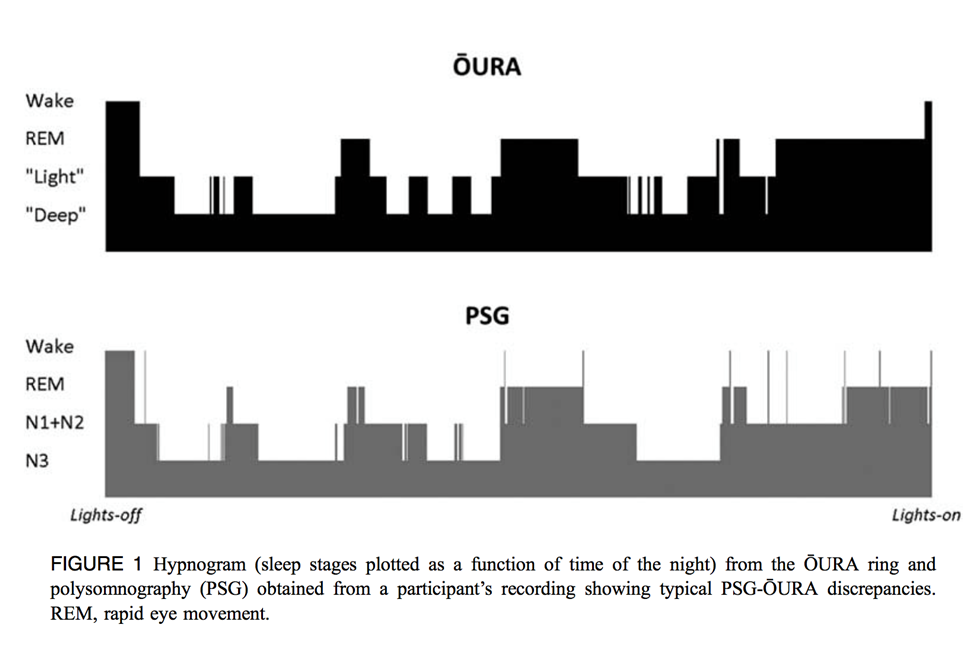
- The Oura Ring has a “readiness score” based on the previous days sleep quality and heart rate. From my observations from the past month, the score has been impacted the most from either drinking too much alcohol or eating too much food before I sleep.
Noticeable ways I get Better Sleep
These are sleep improvement tips that have a direct impact on how well I sleep.
Abstain from alcohol. I’m not even talking about going to sleep drunk. Even 1-3 drinks before I sleep impact the quality of my sleep in a measurable way. My heart rate is elevated as well as my body temperature and I wake up more often in the middle of the night. The more alcohol I consume, the faster my heart rate is during sleep, the higher my core temperature, and the worse the overall sleep quality is.
Melatonin. Taking 1-2 mg of melatonin not only makes me fall asleep faster (sleep latency) but also extends how long I sleep. I only use melatonin when I travel to adjust to the new time zone or when I feel like my body needs to catch up on sleep or I have to wake up unusually early the next day. Be warned, if you take melatonin too often, it lessens the effectiveness of it.
Winding Down. I need at least an hour before I sleep to just relax, read, and wind down. Some people can come back from a night out, dinner, or late night at work and jump in bed and crash. I wish that was me. Even if I come back at 2 am, I need some down time to chill before I can fall asleep.
Room Temperature. The cooler the room, the better I typically sleep. Hot summer nights definitely affect the quality of my sleep. That’s why I invested in the chili pad.
Avoiding Caffeine. I’m an addict so caffeine is difficult for me to give up. I try to limit myself to 1 large cup in the morning. I can still drink coffee later in the day, but it usually will delay the time I sleep for at least an hour all the way up to 2 hours. An experiment for this year will be to avoid any caffeine for a few weeks and see how it affects my sleep.
Eye mask. Unless you sleep in a pitch dark room or wake up around the time the sun rises, an eye mask will help you extend your sleep. This has made a huge difference for me. I recommend this eye mask specifically.
Avoiding Late Night Meals. My sleep performance suffers when I eat a large meal late at night. I can’t sleep well until food is settled and digested. Small snacks usually don’t have a noticeable impact on my sleep though. Here’s an article that talks about potential reasons why.
These are other recommended methods to improve sleep that have not made a noticeable difference to me personally.
- Staying away from screens. Whether I read a book or read from my iPhone, I don’t notice a difference in sleep latency or quality of sleep. Of
course texting, surfing the net and responding to messages and emails in bed will affect when I sleep. But I think that has more to do with NOT winding down properly than the blue light of electronic devices. - Exercise. I’m sure exercise helps in improving sleep since it helps with almost every other aspect of your physical and mental health, but since I’ve integrated exercise as part of my daily life, I don’t really notice a difference. I just assume I am getting better sleep than I would without the daily exercise.
- Warm showers, warm milk, listening to soft music, special smells or lighting. They may help some get to sleep, not me.
Why Track Your Sleep?
You may be thinking that tracking sleep is pointless. You either wake up well rested or not, right?
While this is technically true, tracking your sleep is like tracking your diet. You really don’t know how much or how little you are consuming and what types of foods or supplements are affecting you until you track it. You may have an intuitive feeling on what works and what doesn’t, but tracking what you put in your body and how you feel and perform in the long run can affect real life actions like what and when to eat, and what supplements you should take. It can also help you determine what activities affect your deep sleep and REM sleep the most which can help you avoid negative behaviors and steer you to positive that can improve your overall sleep quality.
What is the one thing that has helped improve your sleep quality this past year?
- https://www.tuck.com/sleep-hgh/
- https://www.fatiguescience.com/blog/5-ways-sleep-impacts-peak-athletic-performance/
- https://breakingmuscle.com/fitness/the-importance-of-sleep-for-weightlifters-and-other-athletes
- https://www.webmd.com/a-to-z-guides/discomfort-15/better-sleep/healing-power-sleep?page=2
- https://www.nootropedia.com/oura-ring-review/
